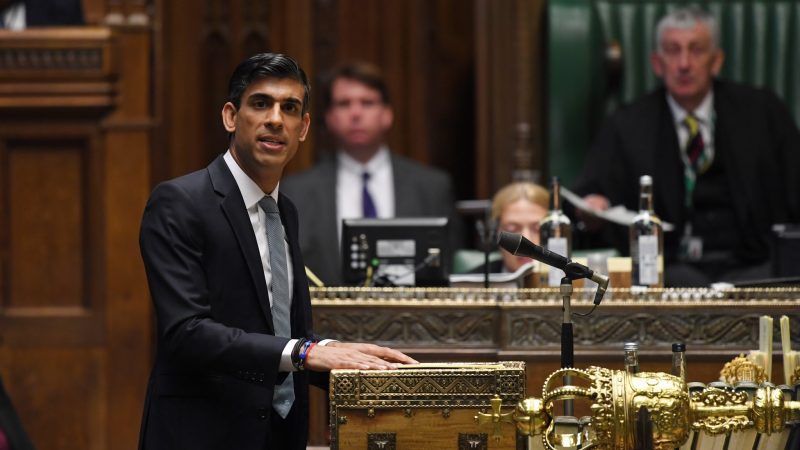
The Treasury select committee has today called on the government to “carefully consider” targeted extensions to its coronavirus job retention scheme that is due to end for all sectors next month.
The new ‘Challenges of Recovery’ report from the cross-party group of MPs warns that the furlough scheme is currently “not effectively targeted” and does not clearly offer value for money.
The Commons committee, which is mostly made up of Tory MPs, concludes that although the retention scheme “cannot persist indefinitely” the Chancellor should consider further support measures.
Shadow Chancellor Anneliese Dodds called for a targeted extension to the furlough scheme in a motion put forward by Labour on Wednesday, but the proposal was rejected by the Commons.
Commenting on the new publication, Treasury select committee chair Mel Stride said: “Our second report of the inquiry focuses on emerging challenges as lockdown measures are lifted.
“One such challenge is to target assistance effectively at those businesses and individuals who need it. The Chancellor should carefully consider targeted extensions to the coronavirus job retention scheme and explain his conclusions.”
The new report is the second by the committee on the economic impacts of Covid. The first identified gaps in the government’s financial schemes that left one million people unsupported.
The proposals set out in the earlier June report were ignored, which led the Treasury select committee to accuse the government of “turning its back on those who are suffering”.
The newly released report also says the government should extend reforms to Universal Credit past their one-year cut-off, support small businesses struggling with debt and define “levelling up”.
Although the Prime Minister claims to have made reducing regional inequalities a central aim of his administration, the committee accuses his ‘levelling up‘ promise of being merely an “empty slogan”.
Stride added: “The key will be assisting those businesses who, with additional support, can come through the crisis as sustainable enterprises, rather than focusing on those that will unfortunately just not be viable in the changed post-crisis economy.
“As the committee has said throughout the crisis, the Chancellor must continue to show flexibility in his approach. We hope that the Treasury’s unwillingness to implement the recommendations from our first report is not a sign of how it will respond to this one.”
The Labour Party has repeatedly expressed its opposition to the government’s decision to cut off the furlough scheme in October, a move that Anneliese Dodds has called a “historic mistake“.
Shadow Chief Secretary to the Treasury Bridget Phillipson commented: “It’s good to hear the Treasury select committee echo Labour’s calls for targeted support for jobs and businesses beyond the Chancellor’s October cliff edge.”
The Labour frontbencher added: “Labour, trade unions, businesses, think tanks, backbench Tory MPs and now the Treasury select committee are all sounding the alarm. What will it take to make this stubborn Chancellor listen?”
Responding to the new report, TUC general secretary Frances O’Grady similarly said: “MPs from all parties are now urging the Chancellor to provide support beyond October so that businesses with a viable future don’t have to lay off staff.
“The TUC has set out a new plan for a job retention and upskilling scheme supporting short-time work. The Chancellor must act quickly and decisively to put a scheme in place before unemployment surges.”
The TUC has previously told the government not to “throw away” the “good work” of furlough and set out its own plan to replace the scheme after it was revealed that the UK could see 2.5m job losses when the programme ends next month.
Steve Turner, assistant general secretary for manufacturing at Unite, said the report “reinforces what Unite has been saying for some time” and shows growing support for continued furlough.
In a piece for LabourList this week on Unite issuing an “SOS for jobs”, Turner wrote: “Keep people in work, not idle and impoverished, when there is an economy to recover and country to rebuild.”
New research from the Joseph Rowntree Foundation shows that ending furlough will disproportionately hit poorer workers, with 40% of those on minimum wage at risk of losing their job as a result of Covid compared to just 1% of those earning over £41,500 each year.
Previously published data from HMRC shows that 44% of all workers furloughed when the Covid job retention scheme began in March were still receiving government support by mid-August.




More from LabourList
Letters to the Editor – week ending 1 March 2026
‘I spent years telling workers the law couldn’t help them – that has changed’
Josh Simons resigns as Cabinet Office minister amid investigation